
EU Prize for Journalism: supporting empowerment of Georgian media
Since 2012 the EU Delegation to Georgia has been selecting and awarding winners of the contest “EU Prize in Journalism”.
The aim of the competition is to support establishing professionalism and ethical standards among journalists working for Georgian media. The prize enables journalists of all media outlets to present their works, i.e. articles in online or print media, TV spot or photo report.
The winner of the 2018 contest was Nino Baidauri’s photo story “Mommy, what does “Negro” Mean?” The winner publication title is a quote from the interview telling about everyday life of the mixed couple:
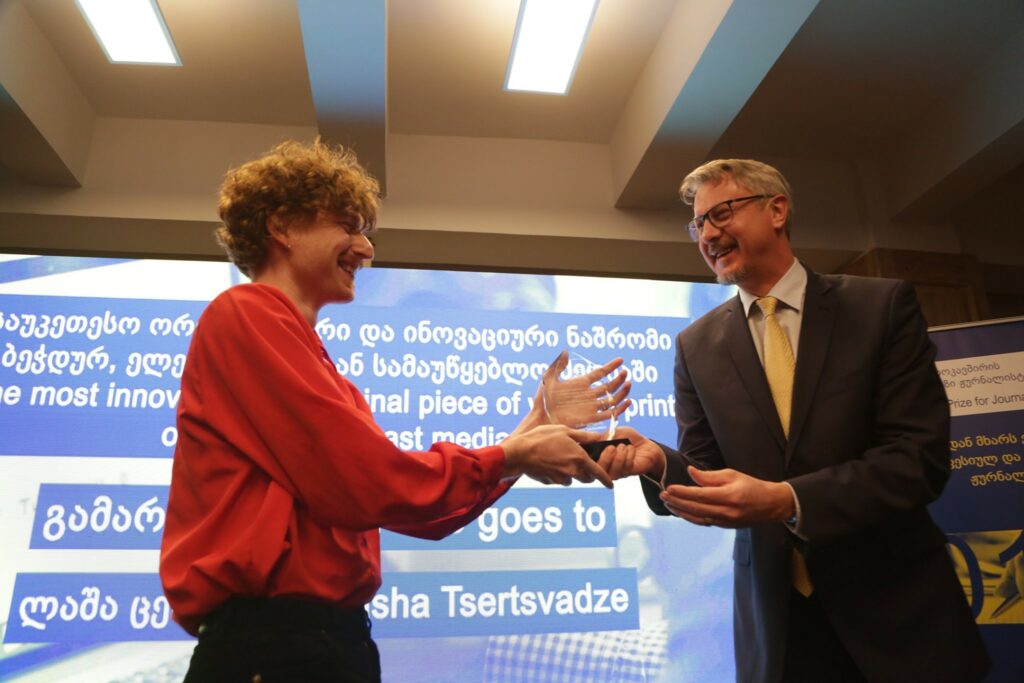 EU Prize in Journalism 2018 ceremony in Tbilisi
EU Prize in Journalism 2018 ceremony in Tbilisi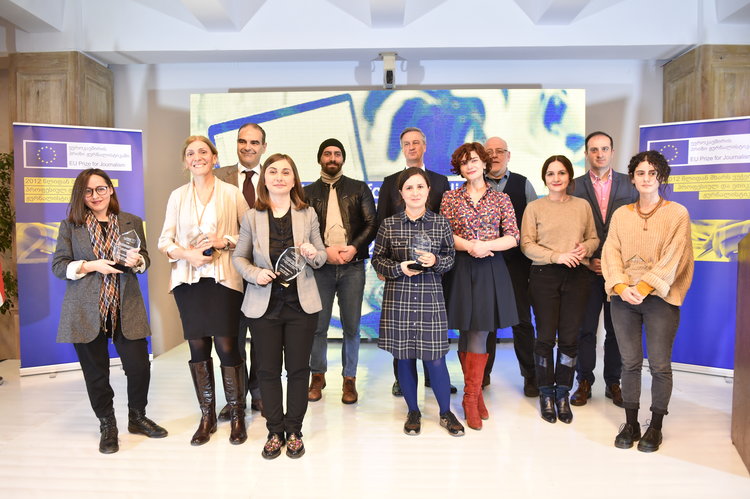 EU Prize in Journalism 2018 ceremony in Tbilisi
EU Prize in Journalism 2018 ceremony in Tbilisi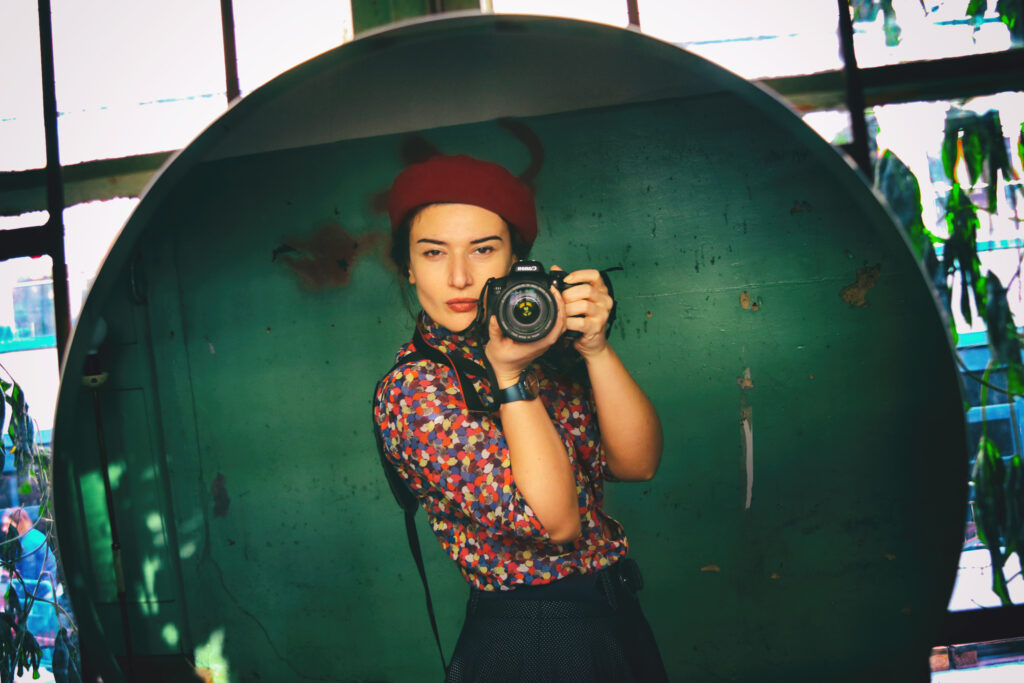 Nino Baidauri
Nino Baidauri
“In the interview the mother tells about their daily life, about those barriers and unpleasant or pleasant cases that they encounter in daily communication with neighbours or other people, in the transport… While their child who does not understand what goes on in the country and simply overhears expressions, and listens to adults’ talks, has asked the parent several times – “Mommy, what does “Negro” mean?” I used this phrase of the child as the title of the photo”, – says journalist Nino Baidauri, and tells as about her interest in this topic:
“In general, human rights is a main field of my interest, within and beyond photography, thus, this is not an unfamiliar topic for me. I was actively involved in the Tolerance and Diversity Institute project “Diversity Faces” in terms of preparing photo stories. We prepared several photo stories under this project. One of them was about the life of coloured people in Georgia, and one particular photo story focused on a mixed couple. When I worked on the photo story, one of the unpleasant incidents had happened just recently and was quite widely publicized in the media. The clash took place between the local population and the Nigerians. That period coincided with the preparation of the photo story, and then – with the announcement of the “EU Prize for Journalism” by the EU. Based on the background situation in the country, it was not difficult any more to select particular photo for the contest.”
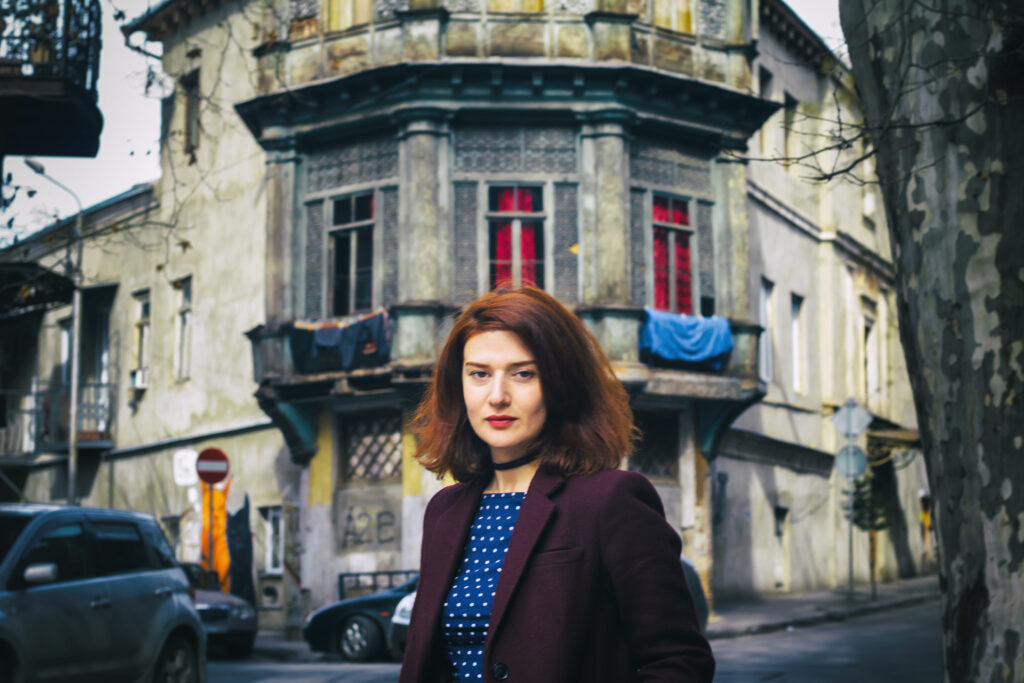 Nino Baidauri
Nino Baidauri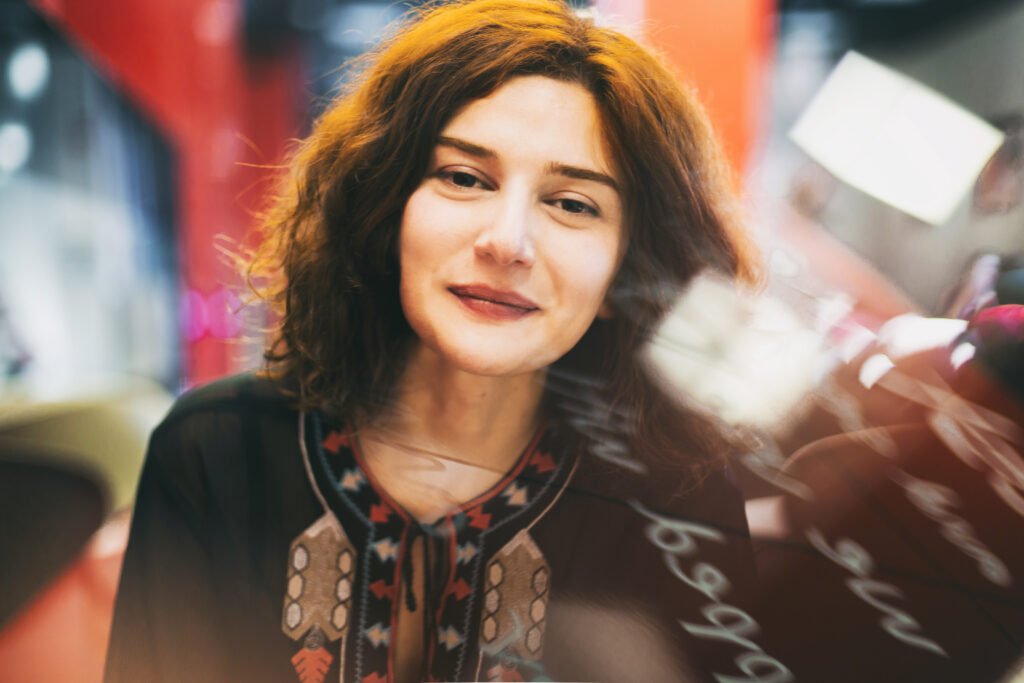 Nino Baidauri
Nino Baidauri
Talking about the contest, Tamriko Mikadze, the representative of press and information section of the EU Delegation to Georgia, notes that the EU has been supporting empowerment of Georgian media for years:
“EU activities in the field of media are not limited to the establishment of this prize. When other TV channels emerged in Georgia, and regional televisions appeared on top of the one central TV channel, EU contributed greatly to the development of media as a national institution. Regional media and generally, media, as a business, received big support from the EU. However, there were some topics related specifically to ethical standards in journalism requiring even more reinforcement, and this was the reason for establishing EU prize for the journalists in 2012,” says Tamriko Mikadze.
The best documentary photo reflecting the EU values – this is one of the competition nominations. Nino Baidauri talks with us about importance of this nomination:
“We can say that human rights, as a topic, is of topmost and primary importance in our country. Somehow, we arrived to the state of development when our daily lives do not deal with electricity and other domestic problems only; we have developed higher level demands… We, as photographers and not only photographers – though I’ll be talking about photographers in this case – on the one hand, have personal interest, for realization of personal aspirations. Simultaneously, you are playing a type of mediator role and ensure information transmittance. Closed topics bring thousands of stereotypes and stigma, whereas you provide information to people to whom this information was unfamiliar, closed, and this is also good and important for the country.”
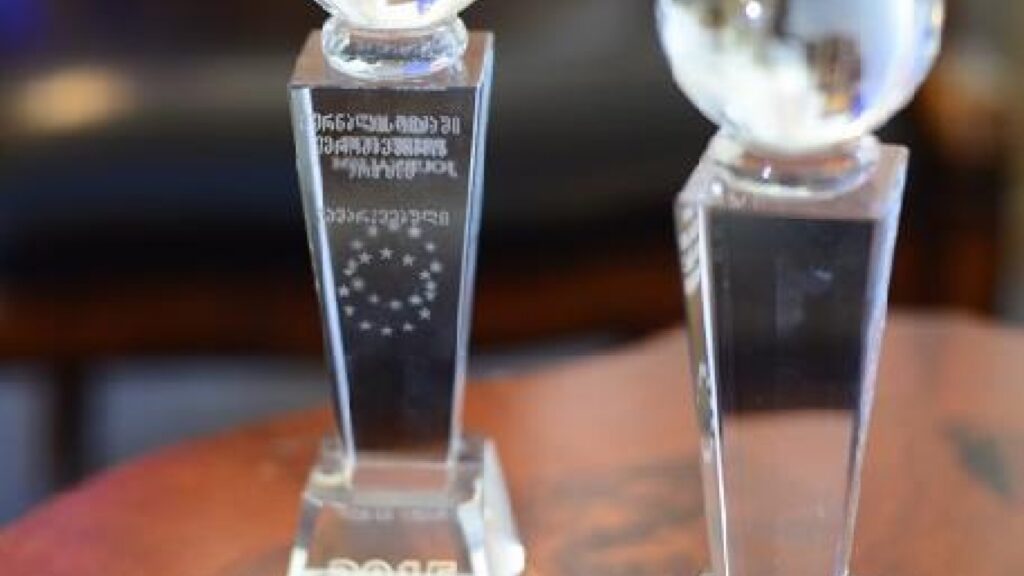 EU Prize for Journalism
EU Prize for Journalism
With regards to terms of the contest and principles for selecting works for it, Tamriko Mikade says that primarily this is a journalist’s application reflecting an opinion of a professional who observes ethical standards in own work. She believes this is one of the important principles of the contest:
“Basic principle is that participation in the contest is voluntary. We do not aim at evaluating entire Georgian media and selecting the best on our own. I think, this is important because if a journalist believes that his/her work is valuable for the contest, this is good and supports development of the journalist as an individual and a professional who observes ethical standards.”
Nominations of the EU Prize for Journalism Contest has increased over the years. In 2019 the journalists applied for 6 prize nominations; besides, in the recent years EU Monitoring Mission established special prize for peace journalism that supports rebuild of trust.
For more information about the contest please visit its official website http://www.euprizejournalism.eu/
In 2018 the award went to:
Nino Tarkhnishvili: Best story in print or online media – https://bit.ly/2RdOhzD
Beso Gvenetadze: Best feature story in broadcast or online media – https://bit.ly/3auNfac
Giorgi Mgeladze: Best investigative story /feature in print, online, or broadcast media – https://bit.ly/30EaCcQ
Jimsher Rekhviashvili: Best online or print blog, opinion or column in print or online media – https://bit.ly/2Rxn89U
Lasha Tsertsvadze: The most innovative and original piece of work in print, online or broadcast media – https://bit.ly/30MQHso
Dato Koridze: Best documentary photo reflecting EU values – https://bit.ly/2NLVl4v
Mamuka Kuparadze: EUMM Special Prize for Peace Journalism – https://bit.ly/30EdIO5
The article is prepared on the basis of the podcast version of radio programme broadcasted b Radio Imedi in Georgian.
Author: Tamar Kuratishvili
MOST READ
SEE ALSO

No, time is not on Russia‘s side
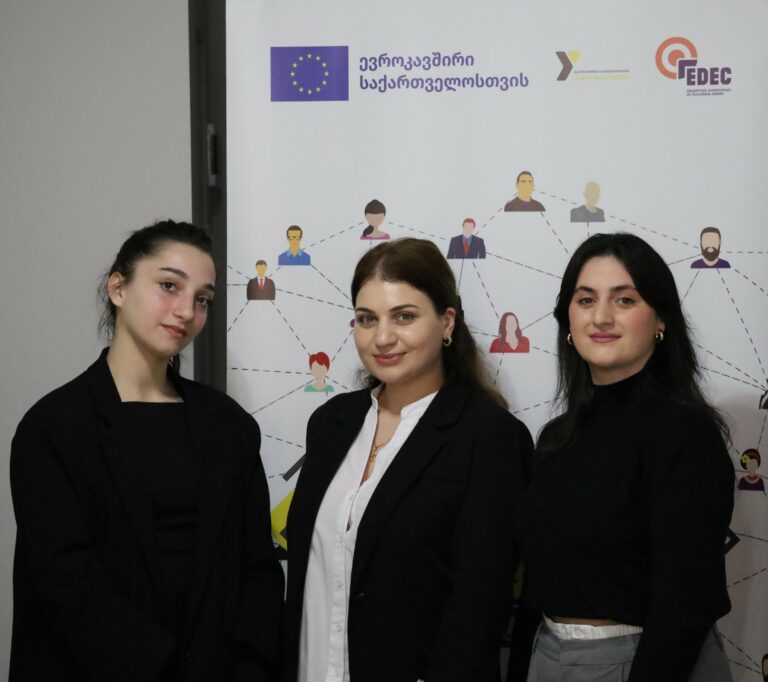
A hands-on approach to boost youth employment in Georgia
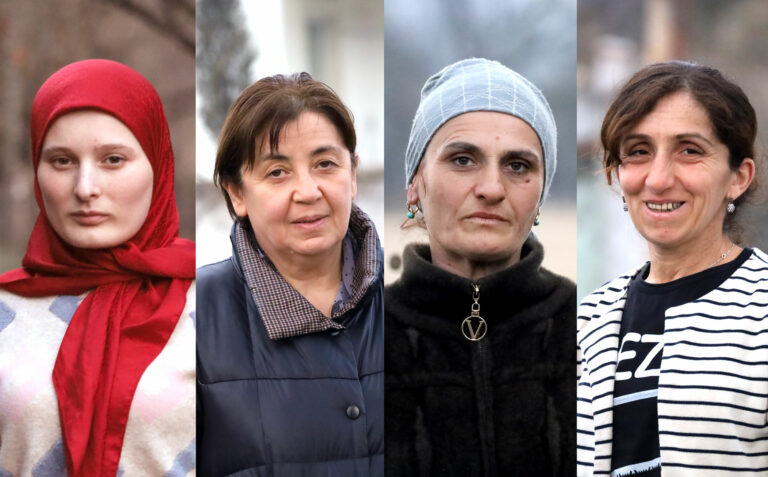
Taking health into their own hands: women’s empowerment in the remote villages of Georgia
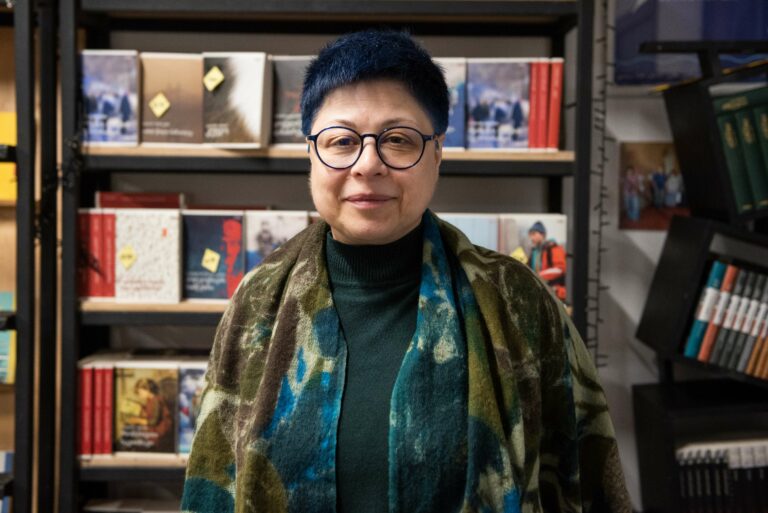
A woman publisher in a male-dominated industry – the path to a big dream

Be one step ahead of a hacker: check simple cybersecurity tips!
More campaign pages:
Interested in the latest news and opportunities?
This website is managed by the EU-funded Regional Communication Programme for the Eastern Neighbourhood ('EU NEIGHBOURS east’), which complements and supports the communication of the Delegations of the European Union in the Eastern partner countries, and works under the guidance of the European Commission’s Directorate-General for Neighbourhood Policy and Enlargement Negotiations, and the European External Action Service. EU NEIGHBOURS east is implemented by a GOPA PACE-led consortium. It is part of the larger Neighbourhood Communication Programme (2020-2024) for the EU's Eastern and Southern Neighbourhood, which also includes 'EU NEIGHBOURS south’ project that runs the EU Neighbours portal.

The information on this site is subject to a Disclaimer and Protection of personal data. © European Union,







